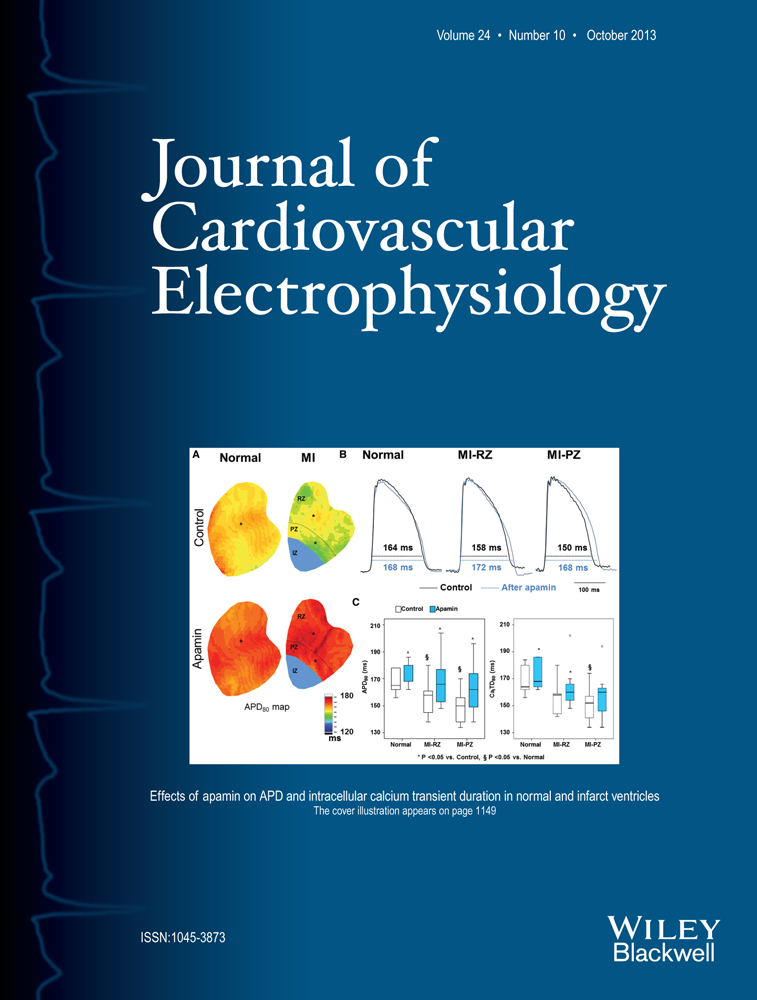Treatment of Cheyne-Stokes Respiration Reduces Arrhythmic Events in Chronic Heart Failure
Dr. Bitter was supported by an unrestricted research grant from the Ruhr University, Bochum.
The AutoSet CS™2 registry was supported by the ResMed Ltd. The sponsor had no involvement in the study conception or design; collection, analysis, and interpretation of the data; in the writing, review or approval for the manuscript; and in the decision to submit the manuscript for publication.
Thomas Bitter has received honoraria for lectures from ResMed Ltd. Klaus-Jürgen Gutleben has received honoraria for lectures and consulting/advisory board activities from Biotronik, Medtronic Inc, Sorin Group, and St. Jude Medical. Georg Noelker has received honoraria for lectures and consulting/advisory board activities from Biotronik, Biosense Webster, Stereotaxis, and St. Jude Medical. Jürgen Vogt has received honoraria for lectures and consulting/advisory board activities from Biotronik, Medtronic Inc, and St. Jude Medical. Olaf Oldenburg has received lectures for honoraria from ResMed Ltd. Zisis Dimitriadis has received travel grants from Medtronic Inc. and ResMed Ltd.
Nina Westerheide, Christian Prinz, and Dieter Horstkotte declare no conflict of interest.
Cheyne-Stokes Respiration and Arrhythmias
Objective
This study aimed to investigate whether adequate treatment of Cheyne-Stokes respiration (CSR) reduces the risk of arrhythmic events in patients with chronic heart failure (CHF).
Methods
A cohort of 403 registry patients with CHF (LVEF≤45%, NYHA-class≥2) and implanted cardioverter-defibrillator devices (ICD) was studied. They underwent overnight polygraphy, with 221 having mild or no CSR (apnea-hypopnea index [AHI]<15/h), and 182 having moderate to severe CSR (AHI>15/h). Latter ones were offered therapy with adaptive servoventilation (ASV), which 96 patients accepted and 86 rejected. During follow-up (21± 15 months) defibrillator therapies were recorded in addition to clinical and physiologic measures of heart failure severity.
Results
Event-free survival from (a) appropriate cardioverter-defibrillator therapies and (b) appropriately monitored ventricular arrhythmias was shorter in the untreated CSR group compared to the treated CSR and the no CSR group. Stepwise Cox proportional hazard regression analysis showed untreated CSR (a: hazard ratio [HR] 1.99, 95% confidence interval [CI] 1.46–2.72, P < 0.001; b: HR 2.19, 95%CI 1.42–3.37, P < 0.001), but not treated CSR (a: HR 1.06, 95%CI 0.74–1.50; P = 0.77; b: HR 1.21, 95%CI 0.75–1.93, P = 0.43) was an independent risk factor. The treated CSR group showed improvements in cardiac function and respiratory stability compared to the untreated CSR group.
Conclusion
This study demonstrates a decrease of appropriate defibrillator therapies by ASV treated CSR in patients with CHF and ICD. A reduced exposure to hyperventilation, hypoxia, and improvement in indices of CHF severity and neurohumoral disarrangements are potential causative mechanisms.




